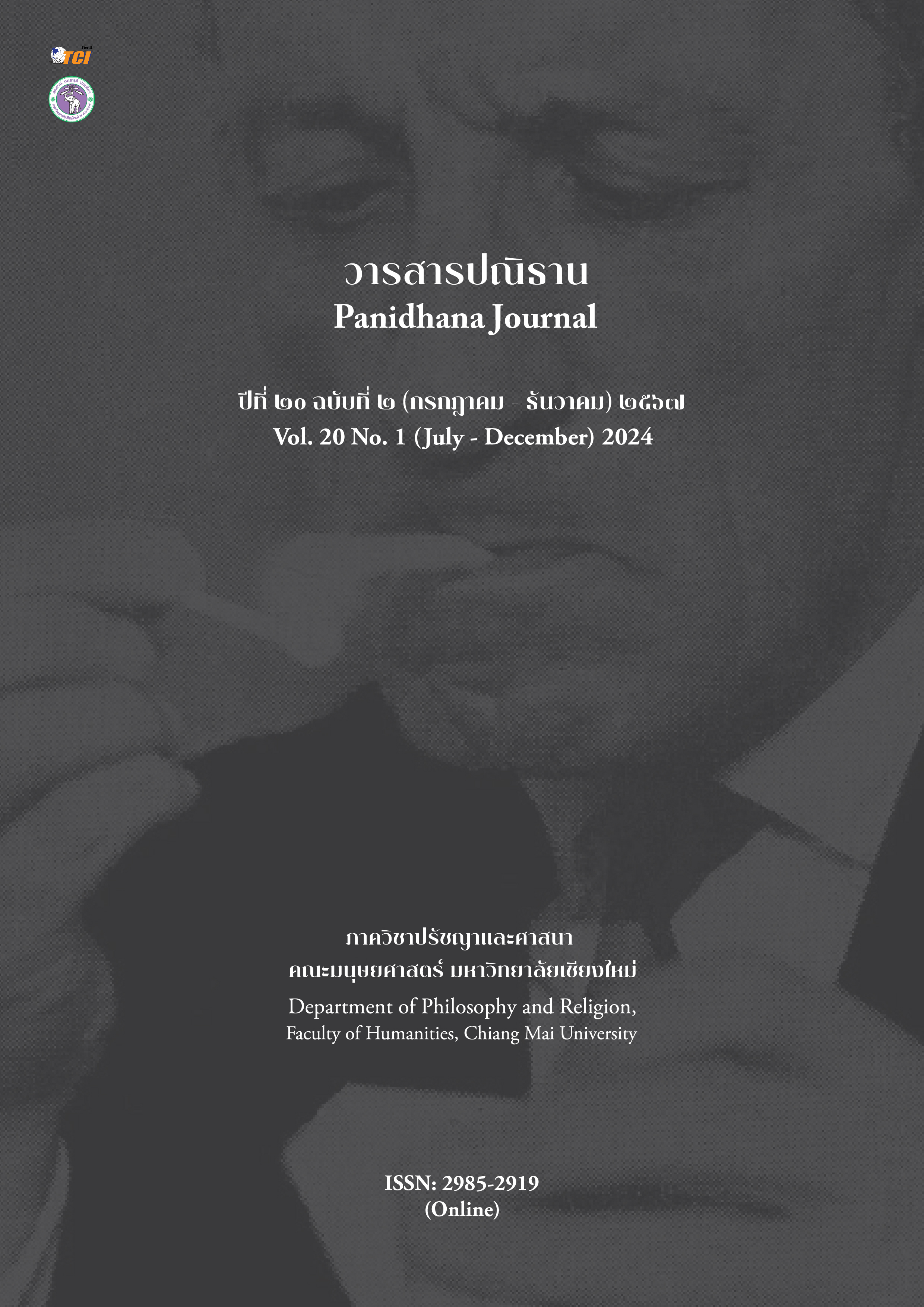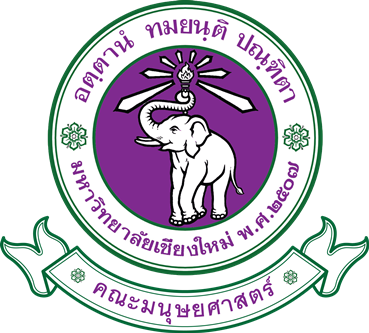การเปรียบเทียบแนวคิดอำนาจอ่อนของโจเซฟ เนย์ และแนวคิดอำนาจนำของอันโตนิโอ กรัมชี
คำสำคัญ:
โจเซฟ ไน, อันโตนิโอ กรัมชี, อำนาจนำ, อำนาจอ่อนบทคัดย่อ
บทความนี้เป็นการศึกษาเชิงเปรียบเทียบ มีวัตถุประสงค์เพื่อวิเคราะห์ความทับซ้อนและความแตกต่างระหว่างแนวคิดอำนาจอ่อน (soft power) โดยโจเซฟ ไน และอานจนำ (hegemony) โดยอันโตนิโอกรัมชี โดยการวิเคราะห์เอกสาร เนื่องด้วยแนวคิดอำนาจอ่อนมุ่งสร้างความเห็นพ้องในแนวร่วมการเมืองระหว่างประเททศ เช่นเดียวกับแนวคิดอำนาจนำของกรัมชีที่มุ่งสร้างความเห็นพ้องให้เกิดขึ้นในการวิวัฒน์รัฐสหการสู่รัฐแบบองค์รวม
ผลการศึกษาพบว่า แนวคิดอำนาจอ่อนและอำนาจนำมีอาณาบริเวณที่เหมือนกัน คือการใช้ความเห็นพ้องในการเอื้อประโยชน์ต่อกลุ่มตนเอง และภาคปฏิบัติของผู้แสดงที่รัฐ ในการอำนวยกิจกรรมที่ส่งเสริมอำนาจอ่อนและอำนาจนำเกิดขึ้น แต่ส่วนที่เหลือนั้นแตกต่าง ในขณะที่อำนาจนำมุ่งกลืนกลุ่มปัญญาชนของกลุ่มอื่น อำนาจอ่อนมุ่งแทรกแซงความคิดเพื่ออุดมการณ์ร่วมการเอื้อประโยชน์โดยที่กลุ่มดั้งเดิมยังคงอยู่ และในขั้นตอนการสร้างการครองอำนาจนำนั้นอาศัยการผันประชากรในประชาสังคมสู่ปัญญาชน ซึ่งเปรียบได้กับ “เจ้าหน้าที่รัฐ” แล้วอาศัยพื้นที่ทางการเมืองในการรับรองปัญญาชนของตนเองเพื่อสร้างการครองอำนาจนำ กล่าวคือ ในแนวคิดอำนาจนำมีเพียงผู้แสดงที่เป็นรัฐที่มีบทบาทเผยแพร่อำนาจนำ ส่วนแนวคิดอานจอ่อนมองว่ากิจกรรมของผู้แสดงที่ไม่รัฐสามารถสร้างอำนาจอ่อนได้เช่นกัน ซึ่งผลการศึกษาของบทความนี้เป็นการยืนยันความแตกต่างในแนวคิดทั้งสองแม้จะเป็นอำนาจจากความเห็นพ้องเช่นเดียวกัน
เอกสารอ้างอิง
วัชรพล พุทธรักษา. (2557). บทสำรวจความคิดทางการเมืองของอันโตนิโอ กรัมชี. สำนักพิมพ์สมมุติ.
Bollier, David. (2003). Rise of Netpolitik: How the Internet Is Changing International Politics and Diplomacy, a Report of the Eleventh Annual Aspen Institute. Aspen Institute.
Budd Adrian, (2004). Gramsci’s Marxism and international relations. Retrieved from
https://isj.org.uk/gramscis-marxism-and-international-relations/
Castells, Manuel. (2010). The Information Age Economy, Society, and Culture (2nd ed.). Blackwell Publishing Ltd.
Cox, R. W. (1983). Gramsci, hegemony and international relations: an essay in method. Millennium, 12(2), 162 – 175.
doi.org/10.1177/030582988301200207
Febriani, M. & Hamdi, I. (2024). Soft Power and Hegemony: Gramsci, Nye, and Cox’s Perspectives. Jurnal Filsafat, 34(1), 86 – 110.
Gramsci, Antonio. (1971). Selections From the Prison Notebooks of Antonio Gramsci. (Q. Hoare, Trans). International Publishers.
Gramsci, Antonio. (1973). Letter from Prison by Antonio Gramsci. (L. Lawner, Trans.). Quartet Book Limited.
Greaves, Nigel. (2009). Gramsci’s Marxism: Reclaiming a Philosophy of History and Politics. Troubador Publishing Ltd
Iver, P., & Short, N. (2013). On Gramsci and the international: a textual analysis. Review of International Studies, 39(3), 621–642.
doi:10.1017!S02602
Kennedy, Paul. (1987) The Rise and Fall of the Great Powers. Random House.
Krauthammer, Charles. (2001). The New Unilateralism. Retrieved from
Nye, Joseph S. (1990). Bound to Lead: Bound to Lead: The Changing Nature of American Powers. Basic Books.
Nye, Joseph S. (2004). Soft power: the means to success in world politics. Public Affairs.
Nye, Joseph S.(2004). The Decline of America’s Soft Power: Why Washington Should Worry. Foreign Affairs, 83(3), 16 – 20.
doi.org/10.2307/20033972
Nye, Joseph S. (2009). Get Smart: Combining Hard and Soft Power. Foreign Affairs, 88(4), 160 – 163. Retrieved from
https://www.jstor.org/stable/20699631
Nye, Joseph S. (2021). Soft power: the evolution of a concept. Journal of Political Power, 14(1), 1 – 13.
doi.org/10.1080/2158379X.2021.1879572
Palazhchenko, Pavel. (1997). My Years with Gorbachev and Shevardnadze: The Memoir of a Soviet Interpreter. The Pennsylvania State University Press.
Przeworski, Adam. (1985). Capitalism and Social Democracy. Cambridge University Press.
Védrine Hubert, Moïsi Dominique, and Gordon Philip H. (2001). France in an Age of Globalization. Brookings Institution Press.
Waxman, Olivia B. (2022). Mikhail Gorbachev Championed ‘Glasnost’ and ‘Perestroika.’ Here’s How They Changed the World. Retrieved from
https://time.com/5512665/mikhail-gorbachev-glasnost-perestroika/
ดาวน์โหลด
เผยแพร่แล้ว
รูปแบบการอ้างอิง
ฉบับ
ประเภทบทความ
สัญญาอนุญาต
ลิขสิทธิ์ (c) 2024 วารสารปณิธาน

อนุญาตภายใต้เงื่อนไข Creative Commons Attribution-NonCommercial-NoDerivatives 4.0 International License.
เนื้อหาของบทความที่ได้รับการตีพิมพ์ในวารสารปณิธานถือเป็นลิขสิทธิ์ของวารสารปณิธาน ห้ามเผยแพร่ ตัดต่อ แก้ไข หรือนำไปใช้ก่อนได้รับอนุญาต
ผู้สนใจสามารถติดต่อขอเผยแพร่เนื้อหาในวารสารปณิธานได้ที่ panidhana-human@cmu.ac.th







